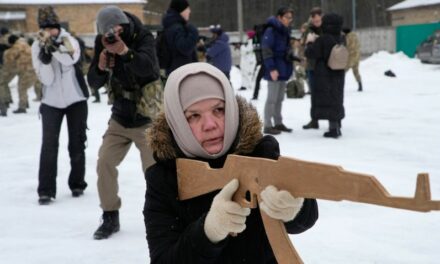Anyone can look up the 64 events listed in the history books that triggered the Second World War in the history books, and can also find out about the number of dead. And also about the so-called peace agreements, their benefits. Written by Katalin Kondor.
A few weeks ago, I watched Steven Spielberg's film drama Empire of the Sun. The story takes place during the Second World War and is about a rich English family living in Shanghai during the Second World War in China.
Spielberg's name is a guarantee of quality, but I am not writing about him now, but about what made me think about this film.
Namely, what events led to the Second World War, which the peoples of the Far East also suffered.
The protagonist of the work presents the events of that time from the point of view of a young English boy, namely the period of the occupation of Shanghai by the Japanese. The child is separated from his parents, he goes through a thousand such and such adventures, as the film's recommender wrote at the time: "the child must learn the cruel tricks of survival, the situation where the inhumanity of war and the imagination of a little boy that transforms everything into a fairy tale fight against each other against."
Of course, when one sees such a film here in the middle of Europe, it is no wonder that the war raging in our neighborhood comes to mind.
Miraculous escapes can and do happen in any war, but when I got through Spielberg's film, I wondered why we know so little about the Second Japan-China War raging between 1937 and 1945? I don't know the answer, maybe I can't because here in Europe we haven't studied much, and we still don't know much about the history of the people living in the Far East. I hardly dare to describe it, but I don't think it's about the Second World War either. Which, according to historians, was the largest armed conflict in the history of mankind and the one with the most deaths, and several historians count the start of the Second Japan-China War in July 1937.
Further "curiously", I looked in the history books to see what events led to the outbreak of the Second World War. I couldn't believe my eyes, I found 64 items, i.e. "events".
I cannot list them all in this one article, written by a civilian who knows nothing about the war, the books and data can be obtained by everyone. So I will list only a few of them: the Polish-Ukrainian War of 1918, the Versailles Peace Treaty of 1919, the Trianon Peace Treaty of 1920. The Italian-Greek conflict in Corfu in 1923, the Beer Putsch in Munich in 1923, the French-Belgian occupation of the Ruhr area in 1923, the publication of Mein Kampf in 1925, the Great Depression of 1929, the 1932 the Soviet-Polish non-aggression pact of 1933, the world disarmament conference held in Geneva in the same year, the election of Hitler as prime minister and head of state in 1933, and the rearmament of Germany in the same year, as well as the withdrawal from the League of Nations. In 1935, the mood was shaken by the fact that compulsory conscription began in Germany, then the second Italo-Ethiopian war broke out, and a year later, i.e. in 1936, the Spanish Civil War also began. In 1938, the Anschluss, i.e. the annexation of Austria, took place, and in 1939, the German occupation of Czechoslovakia, and in that year the final operations of the Spanish Civil War took place, and the German invasion of Poland also took place at that time.
Well, I listed only 18 of the 64 events listed in the history books that triggered the World War above, anyone can look for the rest in the history books, but also on the internet, just as you can find out about the number of dead.
And - and I would say this sarcastically, but I'm writing now - about the so-called peace agreements and their benefits.
Let's not even talk about the atomic bombs dropped on Japan, nor about the concentration camps.
Essays on whether history teaches.
I think that today's civil thinkers can only give one kind of answer to this. He doesn't teach! It does not teach those who are still burning in the fever of the wartime - and now experienced daily.
If we consider only the modestly selected 18 out of 64 events that sparked the former World War, we can say that they can still be found in the vocabulary and thoughts of those who threaten perpetual war and those who plan war.
Because it is indisputable, for example, that wars - I am not only referring to the Russian-Ukrainian one - are still going on, in proxy and non-proxy "performance". As well as writings encouraging war, we can hear from European politicians about military aid, sending their own citizens to war between foreigners, such and such provocations - for example, about blowing up underwater gas pipelines, about hidden and secret meetings of the world's magnates, about using nuclear weapons, about the mandatory admission of migrants, about various anti-life theories , about health decisions made behind our backs - so
the essence has not changed, there are still provocative events leading to another world war, just like before.
War is eternal. It seems that humanity has to accept this. But we should not stop accepting every plan, every inciting and inciting word for war, take it as authentic, and not dare to oppose it.
"Fashion doesn't move forward, it just changes back," said the old hit. The fashion for warfare does not progress either, it just reinvents itself forever. It is always worth quoting Orwell in this matter. One of his statements - which can hardly be refuted - reads as follows: "The most frustrating thing about the whole war is perhaps not that we have to suffer so much misery, but that our destiny is in the hands of figures. It's like your life is set for a single game of chess, and you have to sit through the game in silence without risking any more stupid moves."
Of course, we watch the parties speechless for the most part, and not many of us argue that our fate is very often in the hands of sleazy figures. And if we speak up, it doesn't mean anything either. The war is eternal - I wrote in the title of this article. Unfortunately, history shows this.
In spite of that! Yet something stirs in the person that we shouldn't accept this after all. In the end, Empire of the Sun is not as sad as it could have been. Only in the movies can brightness, lightness and happy endings come, but in reality it doesn't come often. Especially not in war stories.
What can we do? According to Orwell, someone could finally translate the beautiful Géza Gyóni's poem "Just for one night" for the gentlemen of the world who, according to Orwell, are squeamish, or just smart, who lack the dignity of a head of state or prime minister, who play the part of a gang boy. Although I would be very surprised if they learned from it.












